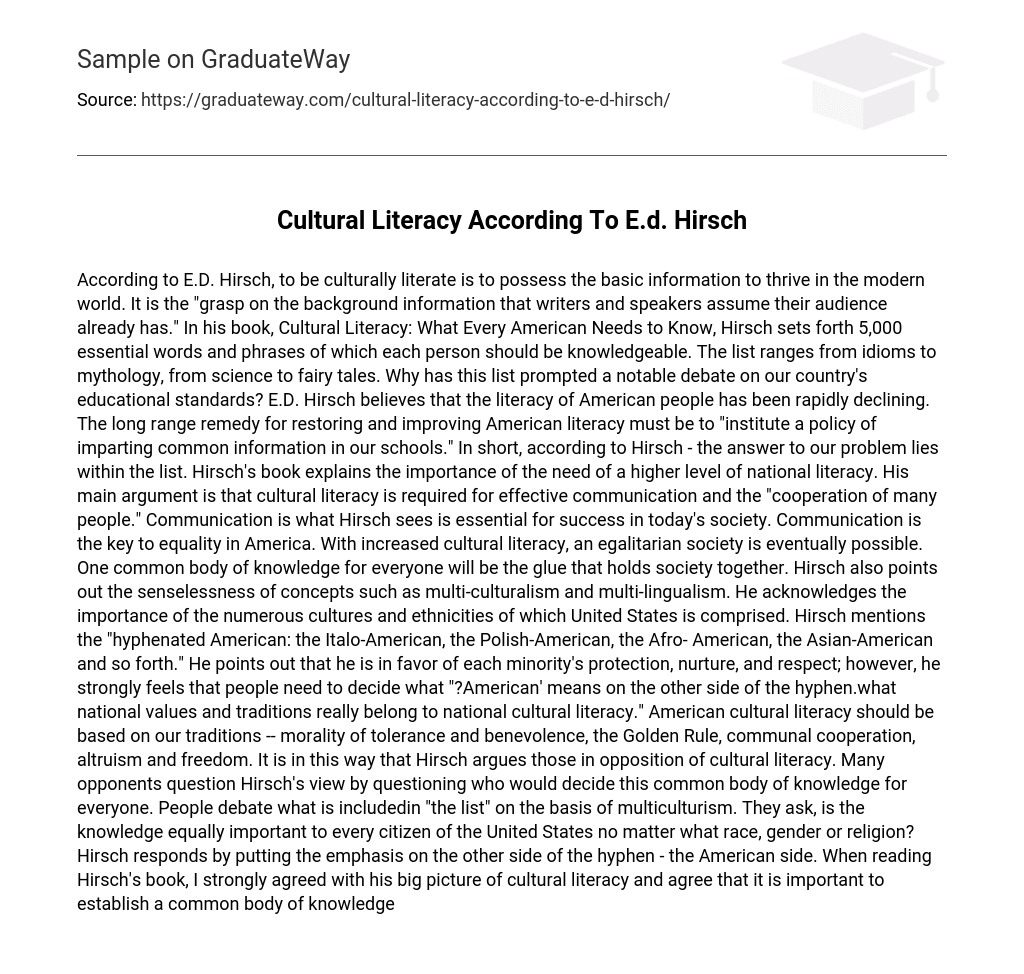According to E.D. Hirsch, cultural literacy is the fundamental knowledge necessary for success in today’s society. This encompasses comprehending the information that writers and speakers presume their audience already possesses. In his book Cultural Literacy: What Every American Needs to Know, Hirsch compiles a compilation of 5,000 significant words and phrases that everyone should be acquainted with.
The list encompasses various subjects like idioms, mythology, science, and fairy tales. This has sparked a significant debate about educational standards in our country. According to E.D. Hirsch, literacy rates among Americans are declining rapidly. To improve long-term literacy in America, it is essential to establish a policy that teaches shared knowledge in schools.
Hirsch argues that the solution lies in attaining a higher level of national literacy. In his book, he underscores the importance of cultural literacy for effective communication and societal cooperation. Hirsch contends that communication is crucial for success in contemporary society and is the gateway to achieving equality in America. Ultimately, enhanced cultural literacy can pave the way towards an egalitarian society.
Hirsch argues that having a shared body of knowledge is crucial for maintaining social unity. While he does not support concepts like multi-culturalism and multi-lingualism, he recognizes the importance of diverse cultures and ethnicities in the United States. This includes hyphenated Americans such as Italo-American, Polish-American, Afro-American, Asian-American, among others. Hirsch advocates for protecting, promoting, and valuing every minority group while also emphasizing the necessity for individuals to establish their American identity separate from their hyphenated affiliations. He emphasizes the significance of embracing national values and traditions as an integral part of national cultural literacy.
Hirsch argues that the bedrock of American cultural literacy should be our traditional values, including tolerance, benevolence, the Golden Rule, communal cooperation, altruism, and freedom. However, opponents of cultural literacy disagree with this viewpoint. Certain critics express worries about determining the shared knowledge that individuals should have. The contents of “the list” are subject to ongoing debate due to multicultural considerations.
Hirsch argues that knowledge is universally important, regardless of a person’s race, gender, or religion. He specifically highlights the American cultural literacy and stresses the need for a common knowledge foundation. Personally, I found Hirsch’s book to be persuasive and agreed with his viewpoint on the importance of cultural literacy.





